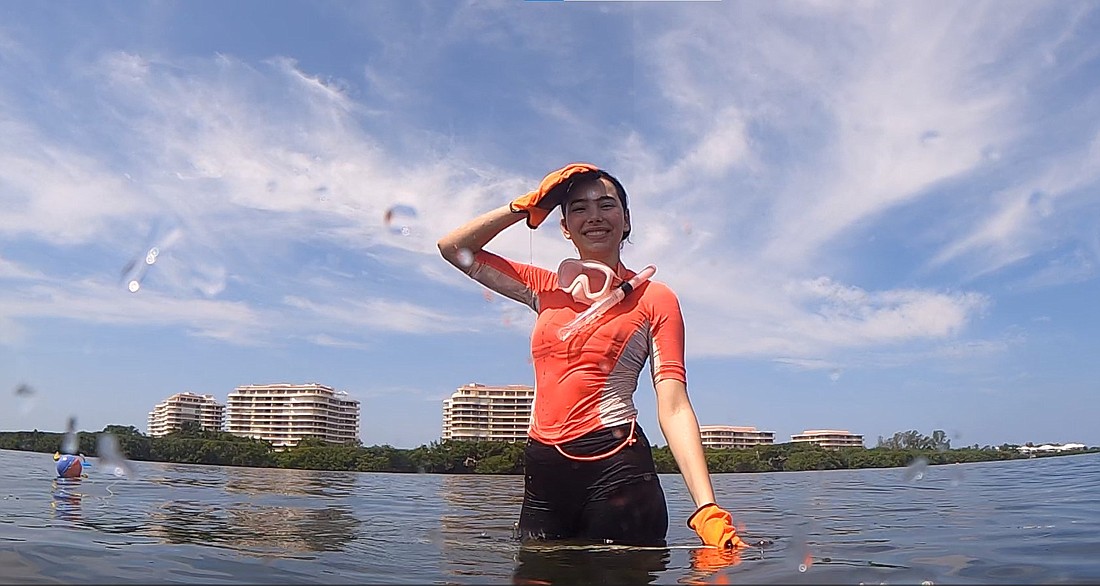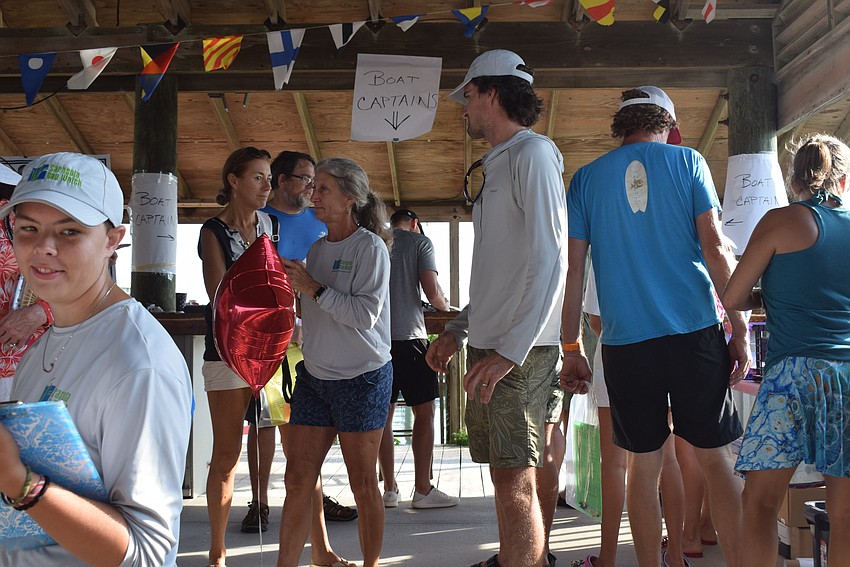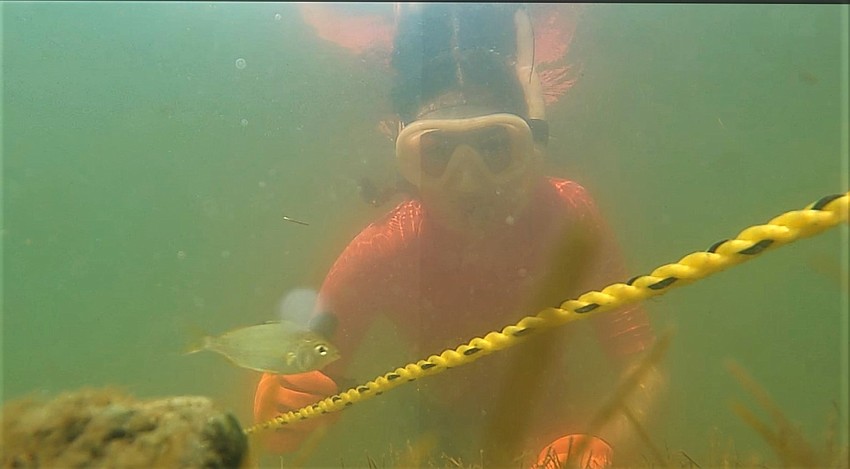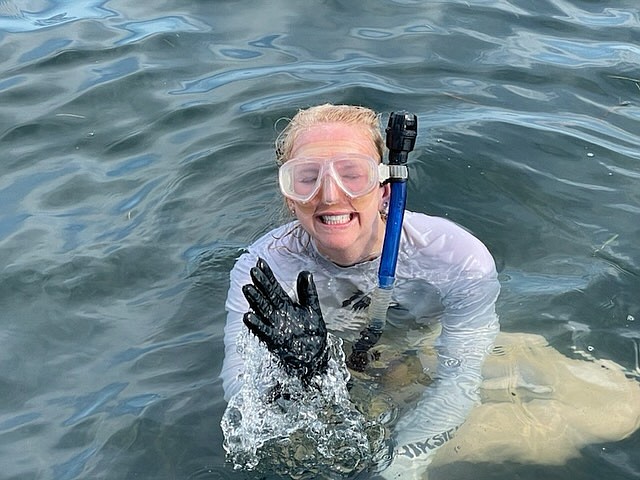- April 28, 2024
-
-
Loading

Loading

The Great Scallop Search is back.
Sarasota Bay Watch on Aug. 26 held its first scallop search since 2019. The event was on hiatus due to the COVID-19 pandemic.
The citizen science event asked volunteers to spend a Saturday morning documenting data on scallops, shellfish, animals and seagrass in Sarasota Bay.
“Scallops are considered the canaries of the water,” said Ronda Ryan, executive director of Sarasota Bay Watch. “If there are changes in the water quality, the salinity, the food source or any of that, it's going to affect the scallop population. So we do the search to look at the status of the water.”
Volunteers got to Sarasota Sailing Squadron at 8:30 a.m. They were encouraged to bring their own boats, snorkels, sun protection and fins, but Sarasota Bay Watch provided equipment for those who needed it. As people were registered, they had bagels and coffee while they listened to Ryan’s plan for the day.

“They're going to come and register and we're going to give them a transect. And the transect, it's going to have a 5-gallon bucket that consists of a weighted line, a couple buoys and some heavy weights on each end," said Ryan.
The transect is a weighted line used to measure a meter in the water.
"They're going to put it down in the water. That weighted line is going to lay along the bottom. Then we have a snorkeler on each side of that line. They're going to swim along that and record what they see.”
Ryan said that volunteers recorded how many scallops and clams they saw, the type of seagrass present and if there are shells, sea horses, stingrays, fish, crabs, etc. Snorkelers will call out everything they see in the water for each meter to a data keeper on the boat, who will record it on a data sheet provided. Each boat is assigned to a different area of the bay.

These scallop searches are done along the coast annually in late summer.
Ryan said Sarasota, Tampa and Charlotte Harbor are all doing searches within a couple weeks of each other. This data will be given to Sarasota County, which has an ongoing scallop monitoring program. FWC Fish and Wildlife Research Institute in St. Petersburg is also interested in the information collected.
“The cool thing about scallops is that they filter about 14.7 liters per hour,” said Ryan. “They suck in water and it goes across their gills and then comes out. But they are extremely sensitive, so they die very easily. In the ‘60s, with the dredging and building and pollution, a lot of the seagrass beds that they require for their habitat were killed off and the scallops died. Red tides are another problem as well.”
The first Great Scallop Search in Sarasota was 2008. It was Sarasota Bay Watch's first formal event as a nonprofit organization. It was founded in 2006.
“You can just gather so much more data this way with it being a citizen science experiment,” said Ryan. “If you had to rely on professionals for all this, it just wouldn't happen because there's not enough staff or enough time. But these volunteers love doing it so it evens it out.”

Ryan emphasized that it has always been a family fun event. She said the same families have been coming for years and their children have grown up with this event.
“It's about getting the community out there and getting their face in the water,” said Ryan. “It helps them get a better feel for the whole living system down there. It helps to make them stewards of the water.”